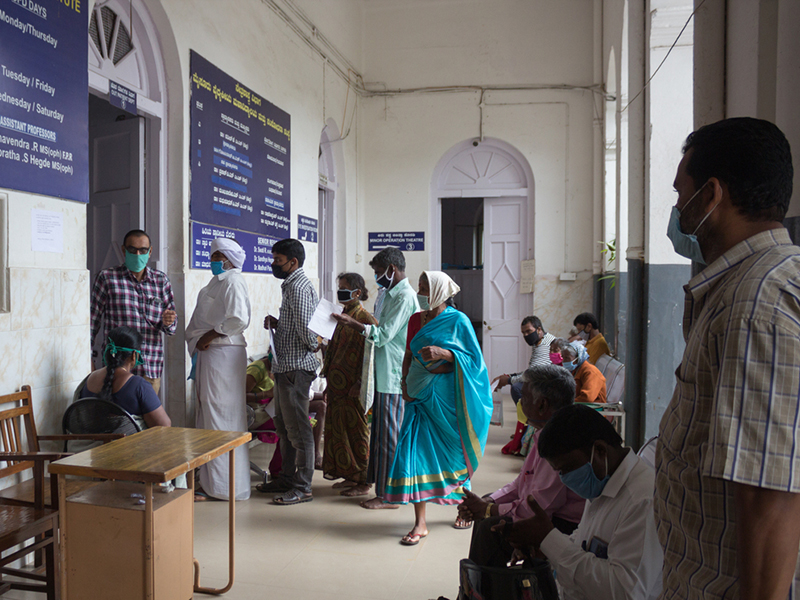Tulane researcher helps alliance set COVID-19 priorities
 Dr. Lina Moses, associate professor of tropical medicine, was a member of a scientific advisory group to the Global Research Collaboration for Infectious Disease Preparedness (GloPID-R) that has released recommendations for funding COVID-19 research over the next 18-24 months. The number one goal of the recommendations, says Moses, is to advance global equity surrounding the pandemic through improved implementation of existing tools and interventions to underserved populations.
Dr. Lina Moses, associate professor of tropical medicine, was a member of a scientific advisory group to the Global Research Collaboration for Infectious Disease Preparedness (GloPID-R) that has released recommendations for funding COVID-19 research over the next 18-24 months. The number one goal of the recommendations, says Moses, is to advance global equity surrounding the pandemic through improved implementation of existing tools and interventions to underserved populations.
GloPID-R is an alliance of global funding organizations established to reduce redundancy and improve efficiency in infectious disease research related to potential pandemics.
Moses participated on the advisory board along with some of the world’s leading scientists and policy makers. “I was pulled in because I lead the operational research working group for GOARN…to try to ground efforts in a real-world, on-the-ground, frontline reality and more of an operational and community-centered approach to COVID-19 research.” GOARN is the Global Outbreak Alert and Response Network, a network of public health agencies, research institutions, humanitarian organizations, and UN agencies including the World Health Organization with a mission to provide technical expertise and surge capacity for infectious disease outbreak response.
There is a huge problem with distribution of global research funding for COVID-19, says Moses. “Most of the COVID-19 research right now is being done through research institutions in the Global North. Even when their research topics are focused on areas in the Global South, the awards go to institutions in the North.” This leads to research that prioritizes and benefits priorities and products for high-income countries and fails to support research development in low- and middle-income countries.
“It’s a kind of research colonialism,” said Moses.
Through this report, GloPID-R is attempting to alleviate the imbalance by looking at different strategies and projecting scenarios five, ten years down the road given the current political, economic, social, and infectious disease landscape that exists now.
“One scenario was focused on what we would call infectious nationalism, which was basically a state- or country-level view of COVID-19 control and response,” according to Moses. Other scenarios were A Back to “Normal” scenario that considered a global research and response structure similar to before the COVID-19 pandemic and one scenario that considered the expansion and increasing power of data technology companies like Google and Facebook.
Recommendations in the report are extensive, with calls to increase, decrease, or maintain anticipated funding of research priorities based on one of three projected scenarios. Themes like environmental health impacts of COVID, mental health considerations, and Long COVID were also considered.
The scientific advisory group worked with the Oxford Saïd Business School in their scenario planning. The outcome of any of the scenarios presented pointed to a fragmentation of research, demonstrating the need for a body like GloPID-R to play a coordinating role, according to the report.
